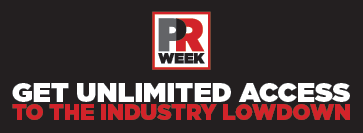Unilever calls for ‘urgent action’ on fraudulent influencers
At Cannes Lions today (18 June), Weed (pictured) will lay out a trio of new policies on behalf of Unilever – one of the world’s largest advertisers with an annual brand and marketing investment of over $7bn (£5.3bn).
Firstly, the firm will not work with any influencers who buy followers; secondly, none of Unilever’s own brands will buy followers; and finally, Unilever will prioritise partners who ‘eradicate fraud and support increased visibility and transparency’.
‘Who wouldn’t agree with that?’: PR pros on Unilever’s threat to pull ads from social media
At the Festival, Weed will join up with the likes of Instagram, Richard Edelman and the World Federation of Advertisers to urge the industry to bring increased trust, transparency and integrity to influencer marketing.
The commitment comes a few months after Unilever pledged not to work with tech platforms that ‘incite hate, spread division or fail to protect children’ – highlighting the need to work with responsible platforms that create a positive impact on society.
He said: “In February, I said we needed to rebuild trust back into our digital ecosystems and wider society. One of the ways we can do that is to increase integrity and transparency in the influencer space. We need to address this through responsible content, responsible platforms and responsible infrastructure.
“At Unilever, we believe influencers are an important way to reach consumers and grow our brands. Their power comes from a deep, authentic and direct connection with people, but certain practices like buying followers can easily undermine these relationships.
“Today we are announcing clear commitments to support and maintain the authenticity and trust of influencer marketing.
“The key to improving the situation is three-fold: cleaning up the influencer ecosystem by removing misleading engagement; making brands and influencers more aware of the use of dishonest practices; and improving transparency from social platforms to help brands measure impact.
“We need to take urgent action now to rebuild trust before it’s gone forever.”
‘Fake’ influencers, or those that inflate their following and engagement rates for commercial gain, is a problem that the PR industry – including the PRCA – has been taking much more notice of in the past 12 months or so.





